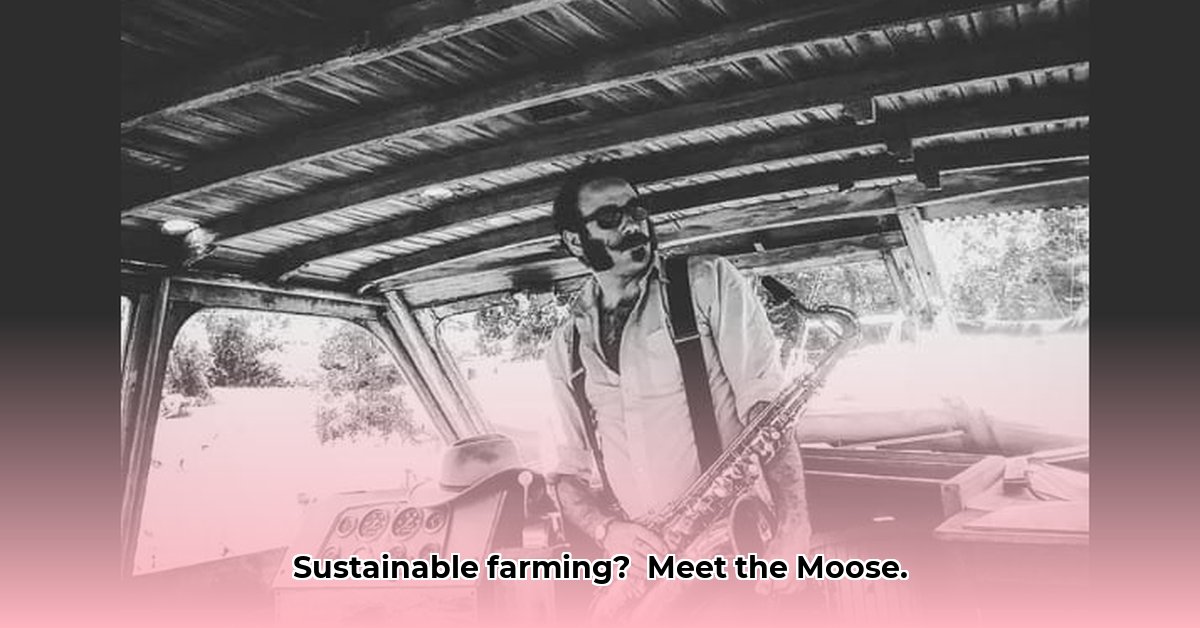
A Fresh Approach to Farming Marketing?
James Moose Tractor, a leader in sustainable agricultural equipment, has partnered with a prominent sustainable agriculture influencer. This collaboration marks a significant development, potentially reshaping marketing strategies within the agricultural sector. Traditional agricultural marketing methods are increasingly being supplemented by digital strategies. This partnership represents a bold step into influencer marketing, a relatively unexplored avenue within sustainable agriculture. The success of this initiative, however, hinges on several key factors, including the specifics of the campaign and meticulous performance measurement. For more on agricultural equipment, check out John Deere models.
The Scoop on the Partnership (What We Know, and What We Don't)
While James Moose confirmed the partnership, details remain scarce. The influencer's identity and the campaign's specifics have yet to be publicly disclosed. This lack of transparency currently limits a comprehensive analysis of the partnership's potential impact. Further information is needed to fully assess the scope of the collaboration and its potential ramifications for both James Moose and the wider sustainable agriculture industry.
What Could Happen? (The Potential Upsides and Downsides)
This collaboration presents both exciting opportunities and potential challenges. Positive outcomes could include: increased brand recognition, particularly among younger farmers; enhanced promotion of sustainable farming practices; and the fostering of a community around sustainable agriculture.
However, risks exist: The potential for "greenwashing" (making unsubstantiated claims of environmental friendliness) is a significant concern. There's also a risk of unintentional or deliberate misinformation being disseminated via the influencer's channels. Lastly, accurately measuring the return on investment (ROI) poses considerable challenges due to the complexities of multi-channel marketing and attribution.
What This Could Mean for the Future of Sustainable Farming
A successful partnership could catalyze a broader adoption of influencer marketing within the agricultural equipment industry. This shift could dramatically alter how sustainable farming practices are promoted and understood. For the sustainable agriculture community, increased visibility through influencer marketing could result in wider adoption of eco-friendly methods. However, the long-term implications remain uncertain pending further details about the campaign’s structure and execution.
Measuring the ROI of Sustainable Agriculture Influencer Marketing Campaigns
The James Moose partnership highlights the need for robust ROI measurement strategies within influencer marketing in the agricultural sector. This is a relatively nascent field, with the absence of widely accepted benchmarks posing a challenge to accurate assessment. Successful measurement requires a detailed understanding of the campaign's objectives, target audience, chosen metrics, and the influencer's reach.
While specific data on the James Moose campaign remains unavailable, several strategies can be implemented to enhance ROI measurement in future initiatives. These include clearly defined goals, customized tracking methods (using UTM parameters, unique landing pages, and discount codes), comprehensive data gathering from various sources, qualitative analysis through social listening tools and surveys, and the application of advanced attribution models.
Looking Ahead: The Importance of Transparency
The ultimate success of this partnership rests heavily on transparency and data-driven assessment. A lack of detailed information currently hinders a definitive evaluation of its impact. The long-term effects on both James Moose and the sustainable agriculture sector will only be discernible with time and the release of more comprehensive data. Future similar initiatives will benefit greatly from establishing clear benchmarks and tracking mechanisms for meaningful evaluation.